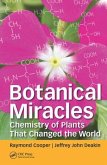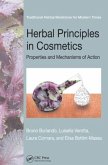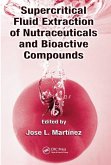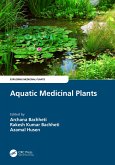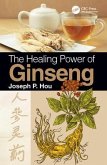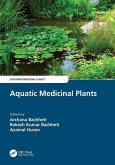As the shortcomings of purely synthetic approaches to biochemical discovery and development are becoming more apparent, a renaissance of interest in the chemistry of natural products as sources for new compounds is occurring. A unique approach to natural products chemistry, Botanical Miracles: Chemistry of Plants That Changed the World relates applications of plant extracts to the historical progress of civilization. It focuses on selected plants from around the world, connecting their stories and properties to the development of modern marvels such as medicinal compounds, nutrition products, beverages, perfumes and organic pigments. Each chapter describes a particular group of plant extracts from various perspectives, including their chemistry, interest and value to man and historical background. The ends of the chapters pose challenging questions.
Introducing plants that are emerging into more prominent roles in human life and addressing current challenges, BotanicalMiracles presents a fascinating point of entry to the chemistry of important natural products. It examines plants and their extracts through the key functional groups, building blocks and concepts of organic chemistry. This book provides, in a single source, information and learning opportunities of value to a wide range of individuals involved in the fields of chemistry, medicine, nutrition or cosmetics whether they be students, educators, researchers or those who simply wish to extend their horizons.
Introducing plants that are emerging into more prominent roles in human life and addressing current challenges, BotanicalMiracles presents a fascinating point of entry to the chemistry of important natural products. It examines plants and their extracts through the key functional groups, building blocks and concepts of organic chemistry. This book provides, in a single source, information and learning opportunities of value to a wide range of individuals involved in the fields of chemistry, medicine, nutrition or cosmetics whether they be students, educators, researchers or those who simply wish to extend their horizons.
I would highly recommend this book for a variety of audiences. It is most ideal for beginning students, as its storytelling format is extremely engaging. I also found myself drawn in to chapters on plants I have not studied much about, simply due to the accessible format and skillful highlighting of interesting facts and stories. Overall, this is a great basic text to serve as a launching pad for further questions and investigations of plants integral to human civilization.
Amy C. Keller, PhD, Journal of Natural Products
The text is written in an engaging style and is remarkably comprehensive in its coverage. It focuses on interesting and curious examples, such as Chinese Cordyceps which is obtained from moth caterpillars that have been infected with the fungus.
[...] As an accessible summary of natural product chemistry, it is exemplary.
- John Edomdson, Chromatographia 82:641
'Botanical Miracles: Chemistry of Plants That Changed the World beautifully makes the case for how natural products have impacted on our lives, culture and development. Drs. Cooper and Deakin have put together a fine and highly readable text, and it is with great confidence that this lovely book can be recommended to those who wish to further appreciate the magnificent contributions of plants and natural products to our world, health, security and comfort.'
Prof. Simon Gibbons, from the Foreword.
'I have been fascinated by the concept and the eventual publication of Botanical Miracles: Chemistry of Plants that Changed the World. I feel that this is without question a brilliant book which brings together organic chemistry, real life contexts and has information that will inspire the best organic chemists as well as non-scientific people with an interest in plant biochemistry. The book will engage many people far and wide well beyond its primary audience of young students.
It is beautifully organized and accessible and each chapter has its own story that entices the reader to continue. It is so refreshing to see organic chemistry presented in real contexts and to be able to learn about progress in terms of pharmaceutical developments and associated issues. The book is all encompassing as it contains academic knowledge about the topic plants, has challenging questions, a glossary and a fantastic index.
A thoroughly-good reference book that will stimulate the interest and enthusiasm of all readers!'
Dr. Gaynor Sharp, Regional Co-ordinator, Association for Science Education (ASE).
'Botanical miracles is a well written book that presents in a clear and easy to read format a wealth of information on a wide ranging number of plants and molecules, the names of which will be familiar to readers of all ages. As well as describing the structure and chemistry of the molecule or plant under discussion, of particular interest is the insight the authors give the reader into the history of a molecule s use and/or discovery. Relevant chemistry from the targeted A-level or pre-university level of study is then discussed before readers are presented with a number of well thought out questions written to stimulate further thought and discussion. The social implications discussed provide excellent material for general studies lessons and cross-curricula links.
Botanical miracles is a first class reference book that students of biology or chemistry should be encouraged to dip in to throughout their studies. The material covered will not only enhance their learning beyond the limits of the curriculum but will also encourage them, at the start of their careers, to consider the wider role that science plays in society.'
Dr. Catherine Smith, Head of Science at John Cleveland College, Hinckley, Leicestershire, UK.
'The content of this book is well suited to A-level chemistry and introductory university courses, and would be a valuable resource to both teachers and students wanting to go beyond the specification. It fills a niche in the market .'
Simon Cotton, for Education in Chemistry, September 2016.
... the fundamental chemistry of natural products that have had a significant social, economic, or medical impact on the world is covered well overall. I especially appreciate the historical anecdotes that provide the "story behind the molecule" in some cases. Botanical Miracles is a good read, and I recommend it for undergraduate and graduate organic and/or natural products chemistry students and educators.
Nancy L. Booth, PhD., for HerbalGram, vol. 113.
This is an interesting and unique book. The authors have chosen a number of plants that are widely grown throughout the world and whose constituents have had a significant influence on the world, either for their food value, medical importance, decorative value, or social impact. This book will be a valuable adjunct to a course in chemistry (at any level) and also to a course in biology. It can also be easily read and understood by a reader at any level, with or without a science background.
Summing Up: Recommended. All readers.
A. Fry, Wesleyan University, for CHOICE, June 2017 Vol. 54 No. 10.
'The book, reporting the daily use of the plant products from every corner of the globe, represents a valuable source of innovative knowledge for all scientists, marketing managers and university students of both the medical and chemical community who wish to learn and appreciate in simple and practical ways the magic biology and chemistry of plants with extraordinary diversity of use and range of properties their active ingredient have.
P. Morganti, Editor-in-Chief, Journal of Applied Cosmetology
Amy C. Keller, PhD, Journal of Natural Products
The text is written in an engaging style and is remarkably comprehensive in its coverage. It focuses on interesting and curious examples, such as Chinese Cordyceps which is obtained from moth caterpillars that have been infected with the fungus.
[...] As an accessible summary of natural product chemistry, it is exemplary.
- John Edomdson, Chromatographia 82:641
'Botanical Miracles: Chemistry of Plants That Changed the World beautifully makes the case for how natural products have impacted on our lives, culture and development. Drs. Cooper and Deakin have put together a fine and highly readable text, and it is with great confidence that this lovely book can be recommended to those who wish to further appreciate the magnificent contributions of plants and natural products to our world, health, security and comfort.'
Prof. Simon Gibbons, from the Foreword.
'I have been fascinated by the concept and the eventual publication of Botanical Miracles: Chemistry of Plants that Changed the World. I feel that this is without question a brilliant book which brings together organic chemistry, real life contexts and has information that will inspire the best organic chemists as well as non-scientific people with an interest in plant biochemistry. The book will engage many people far and wide well beyond its primary audience of young students.
It is beautifully organized and accessible and each chapter has its own story that entices the reader to continue. It is so refreshing to see organic chemistry presented in real contexts and to be able to learn about progress in terms of pharmaceutical developments and associated issues. The book is all encompassing as it contains academic knowledge about the topic plants, has challenging questions, a glossary and a fantastic index.
A thoroughly-good reference book that will stimulate the interest and enthusiasm of all readers!'
Dr. Gaynor Sharp, Regional Co-ordinator, Association for Science Education (ASE).
'Botanical miracles is a well written book that presents in a clear and easy to read format a wealth of information on a wide ranging number of plants and molecules, the names of which will be familiar to readers of all ages. As well as describing the structure and chemistry of the molecule or plant under discussion, of particular interest is the insight the authors give the reader into the history of a molecule s use and/or discovery. Relevant chemistry from the targeted A-level or pre-university level of study is then discussed before readers are presented with a number of well thought out questions written to stimulate further thought and discussion. The social implications discussed provide excellent material for general studies lessons and cross-curricula links.
Botanical miracles is a first class reference book that students of biology or chemistry should be encouraged to dip in to throughout their studies. The material covered will not only enhance their learning beyond the limits of the curriculum but will also encourage them, at the start of their careers, to consider the wider role that science plays in society.'
Dr. Catherine Smith, Head of Science at John Cleveland College, Hinckley, Leicestershire, UK.
'The content of this book is well suited to A-level chemistry and introductory university courses, and would be a valuable resource to both teachers and students wanting to go beyond the specification. It fills a niche in the market .'
Simon Cotton, for Education in Chemistry, September 2016.
... the fundamental chemistry of natural products that have had a significant social, economic, or medical impact on the world is covered well overall. I especially appreciate the historical anecdotes that provide the "story behind the molecule" in some cases. Botanical Miracles is a good read, and I recommend it for undergraduate and graduate organic and/or natural products chemistry students and educators.
Nancy L. Booth, PhD., for HerbalGram, vol. 113.
This is an interesting and unique book. The authors have chosen a number of plants that are widely grown throughout the world and whose constituents have had a significant influence on the world, either for their food value, medical importance, decorative value, or social impact. This book will be a valuable adjunct to a course in chemistry (at any level) and also to a course in biology. It can also be easily read and understood by a reader at any level, with or without a science background.
Summing Up: Recommended. All readers.
A. Fry, Wesleyan University, for CHOICE, June 2017 Vol. 54 No. 10.
'The book, reporting the daily use of the plant products from every corner of the globe, represents a valuable source of innovative knowledge for all scientists, marketing managers and university students of both the medical and chemical community who wish to learn and appreciate in simple and practical ways the magic biology and chemistry of plants with extraordinary diversity of use and range of properties their active ingredient have.
P. Morganti, Editor-in-Chief, Journal of Applied Cosmetology


